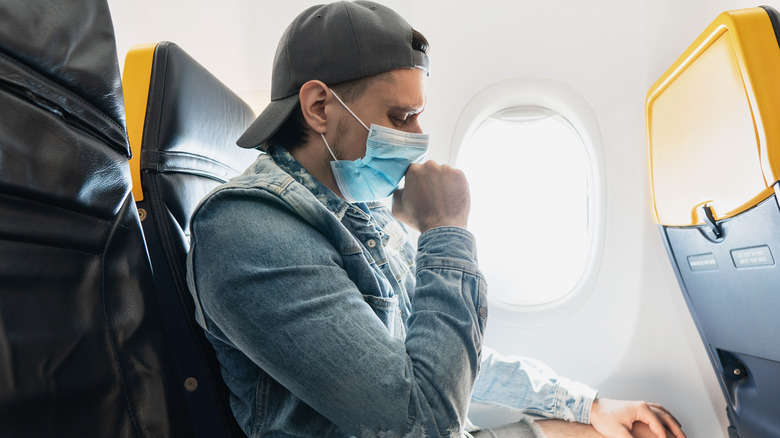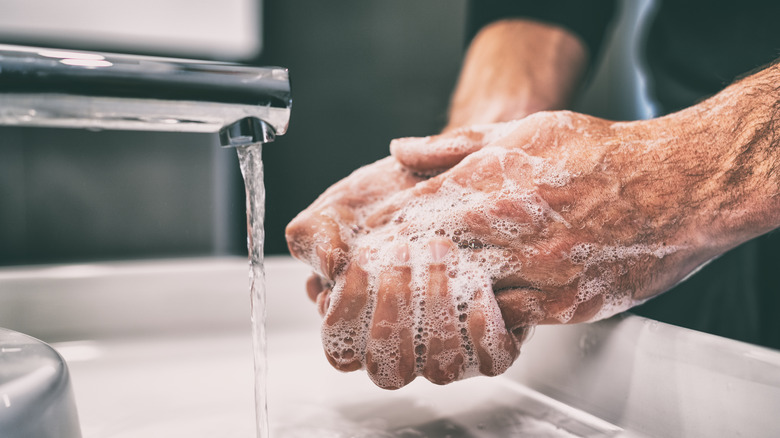How To Best Protect Yourself From The 'Tridemic' During Holiday Travel
In recent months, you may have heard the term "tridemic" being referenced amongst health experts or in the media. For those who have questions regarding what exactly a tridemic is, Health Digest spoke to Jodi Jaeger, RRT, Director-At-Large, and American Association for Respiratory Care (AARC) Board of Directors, as she shared tips for how to stay safe and healthy while many of us board planes, trains, and more to see loved ones this holiday season.
"The term 'tridemic' refers to three viruses, specifically COVID-19, influenza (flu) and respiratory syncytial virus (RSV), all occurring at the same time," Jaeger starts off explaining. "Since Thanksgiving, the U.S. has seen a spike in all three of these viruses," she states. While social distancing, hand-washing, and masking kept respiratory virus cases low during 2020 and 2021, Jaeger explains that with the relaxation of these protective measures this last year, comes an increase in infection risk. "Lack of immunity is a concern," she states, "because of low exposure in the last two years."
Three tips for optimal protection
Jaeger tells Health Digest that her first tip for folks traveling this holiday season is for eligible individuals to receive their vaccines. "Both influenza and COVID-19 have very effective vaccinations," she explains. In addition to reducing one's risk for contracting the virus, Jaeger states that receiving these vaccines also minimizes one's chances for serious cases of infection, hospitalization, and death. "Vaccines add to the number of people in the community who are protected from getting COVID-19 and influenza, making it harder for the disease to spread," she adds. "Mass vaccinations help protect the most vulnerable people in our community."
Her second tip for people embarking on holiday travel is to mask up and implement social distancing, particularly when in populated indoor settings. "COVID-19 is spread through the air and close contact, [and] the flu is most often spread through droplets in the air and close contact, so wearing a mask and social distancing can prevent exposure to the viruses," Jaeger encourages. Her third and final tip is to be vigilant about hand hygiene while traveling. "RSV is spread more often from surfaces than in the air," she explains. "Wash your hands frequently and use hand sanitizer after being in public spaces, bathrooms, and before eating," she concludes.
To learn more about the American Association for Respiratory Care (AARC), visit aarc.org.


